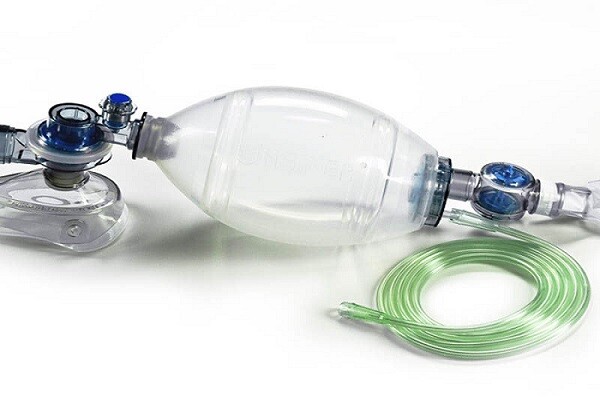Protein Supplements: Unraveling the Need, Benefits, and Safety Considerations in a Busy World
 |
| Protein Supplements |
Protein is an essential macronutrient that plays a key
role in building and repairing muscles, bones, skin and blood. However, in
today's busy lifestyle, meeting the daily recommended protein intake through
diet alone can be challenging for many. This has led to a surge in popularity
of protein supplements. But are protein supplements really necessary for
everyone or are they just a marketing gimmick to make profits
What are protein supplements?
A protein supplement is any food or drink that is consumed to increase the
total amount of protein obtained through diet. Common protein supplements
include protein powders, protein bars, protein shakes, protein cookies etc.
that are made from various protein sources like whey, casein, soy, pea, egg and
others. These supplements are usually fortified with essential amino acids and
are easily digestible.
Who needs Protein
Supplements?
While most people can meet their protein needs through a balanced diet, the
following groups may benefit from including protein supplements:
- Athletes and bodybuilders: Intense exercise breaks down muscles and adequate
protein intake is required for muscle recovery and growth. However, protein
supplements should not replace whole foods for athletes. They must be used as a
supplement to a healthy diet.
- Vegetarians and vegans: It can be challenging for vegetarians and vegans to
obtain complete protein from plant-based foods alone throughout the day.
Protein supplements help fulfill their daily protein requirements.
- Older adults: Protein requirements remain the same with age but appetite and
digestion declines with age. Supplements help older adults easily consume
sufficient high quality protein for maintaining muscle mass.
- Individuals recovering from injuries: Supplements speed up muscle recovery
post injury or surgery by providing readily absorbed high quality protein.
- Overweight individuals: Excess weight puts additional stress on joints during
activities. Protein supplements curbs appetite and aids fat loss while
preserving muscle mass during weight loss.
- Pregnant and breastfeeding women: Protein demands increase during pregnancy
and lactation. Supplements help meet the additional protein needs without
overeating.
So in summary, protein supplements are beneficial for certain groups involved
in intense exercise, following restrictive diets or during life stages
requiring additional protein intake.
Evaluating protein supplement quality
Not all protein supplements are created equal. It is important to check the
label thoroughly before purchasing any supplement. Some key points to consider
are:
- Protein source: Whey protein is popular due to high biological value and
quick absorption but can cause issues in lactose intolerant individuals. Casein
provides sustained release over long periods.
- Amino acid profile: Look for products containing all essential amino acids
like leucine, isoleucine, valine, tryptophan etc. to maximize muscle building.
- Added sugars, flavors or fillers: Choose supplements with little to no added
sugars or unnecessary fillers that provide only empty calories.
- Digestibility: Opt for easily digestible supplementation forms like powder
over bars or cookies that are dense and heavy on the stomach.
- Cost per serving: Compare cost per serving protein to get value for money
while considering quality and absorbability.
- Manufacturing standards: Buy supplements from reputed brands following Good
Manufacturing Practices to avoid questionable ingredients and contamination.
Selecting the right type and form of high quality protein supplement tailored
to individual needs is crucial for maximum benefits.
Are protein supplements really safe?
When consumed as directed by reputed brands, high quality protein supplements
following labeling guidelines are generally safe for most people. However,
there are a few safety concerns to be aware of:
- Kidney stress: Very high protein intakes over long periods from supplements,
especially those high in animal protein, can be hard on kidneys for some
susceptible individuals like those with pre-existing renal issues.
- Digestive discomfort: Excessive supplementation, especially of plant-based
sources low in essential amino acids like pea or soy can cause gas, bloating or
diarrhea in sensitive individuals.
- Contamination risks: Cheaper supplements sold without proper certification
may contain banned ingredients, heavy metals or other toxins depending on
manufacturing conditions.
- Nutrient deficiencies: Taking protein supplements as meal replacements
without nutrient-dense whole foods can potentially undermine micronutrient
status in the long run.
- Drug interactions: Protein supplements may interfere with medication
absorption if taken around the same time without consulting a doctor.
The key is moderation and common sense. Most people can safely use protein
supplements as an additional source when combined with a healthy varied diet
and regular medical checkups. But if symptoms develop, it's best to consult a
doctor before continuing use.
Conclusion
In summary, protein supplements provide a convenient way to boost protein
intake, especially for groups involved in intense exercise, following
restrictive diets or during periods of increased protein demands in life.
However, they are not essential for everyone and whole foods must be
prioritized for overall nutrition. Selecting a high quality product suited to
individual needs, consuming as directed and not relying solely on supplements
are essential to reap benefits safely. Consumption in moderation combined with
medical supervision, if needed, make protein supplements a viable nutrition
support option for most healthy people.



Comments
Post a Comment